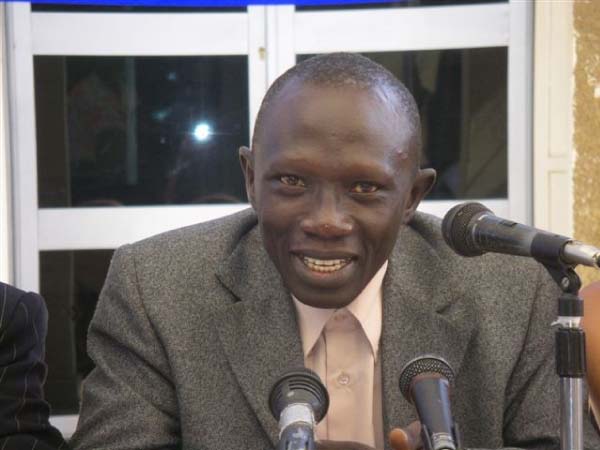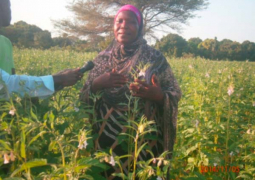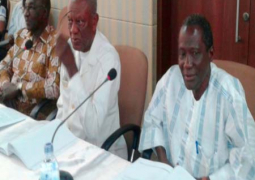
Regarding
promotion and protection of the human rights of citizen, the new government and
people of the Gambia have begun to strive to make the country exemplary in
Africa. This is commendable! It is also
unstoppable considering the degree of determination backing it.
However,
it is imperative that the human rights of Gambians with a disability are made
part of this total human rights promotion scheme. Persons with disability are integral part of
the Gambian society. Equity and
inclusiveness, equality of opportunities, accepting and valuing human
diversity, has to form the basis of this development.
A
society’s wellbeing depends on ensuring that all its members feel that they
have a stake in it, and do not feel excluded from the mainstream. This requires all groups having opportunity
to improve or maintain their wellbeing.
But for development programmes to be fully inclusive of persons with
disability, they must be approached from the perspective of the Convention on
the Rights of Persons with Disabilities (CRPD).
The Sustainable Development Goals which emphasises that no one must be
left behind implies through application of this CRPD approach.
What
is in the CRPD?
General
Principals – Article 3
Respect
for inherent dignity, individual autonomy including the freedom to make one’s
own choices, and independence of persons;
Non-discrimination;
Full
and effective participation and inclusion in society;
Respect
for difference and acceptance of persons with disabilities as part of human
diversity and humanity;
Equality of opportunity;
Accessibility;
Equality
between men and women;
Respect
for the evolving capacities of children with disabilities and respect for the
right of children with disabilities to preserve their identities.
Obligations
of state (under CRPD) – Article 4
Governments
must:
Adopt all appropriate legislative,
administrative and other measures for the implementation of rights in the
Convention;
Remove
or change laws, policies or ways that discriminate against persons with
disability;
Make
policies and programs inclusive of and accessible to people with disability;
Ensure
government’s institutions and services refrain from any act or practice that
discriminates against persons with disabilities;
Make
sure no one else discriminates against people with disability be this NGOs,
business or any other non-state actors;
Making
sure things are designed for everyone, in an inclusive way; that require
minimum adaptation or that can be easily changed;
Invest
and promote research into development of new technologies to promote
availability and use of assistive technology at affordable cost, including
information and communication technology, devices, mobility aids;
Train
people – public and private actors, persons with disabilities and families so
that everyone is aware of the right and responsibilities in achieving what the
CRPD asks;
Make sure people with disability, including
children, have a say in the way the Convention is carried out, through
organizations that represent them.
The
following is an extract from the Summary Recap Document of the BRIDGE CRPD-SDG
training workshop for Eastern-Western Africa 2016-2017 (14-20th November 2016,
held in Accra, Ghana, on the theme: Building a CRPD perspective on development
and Agenda 2030.
Why
we need the CRPD:
“Whilst
people with disability have ‘formal equality’ on paper with others, the reality
is that persons with disabilities face discrimination in many areas of life, be
this through facing barriers in terms of access to legal, education and health
services to participation in community and public life. The barriers are
varied: attitudinal, environmental, communications, information, transportation
and result in many forms of discrimination multiple.
“Furthermore, governments often do not
understand how to ensure that persons with disabilities enjoy their rights as
everybody else. Stigma, myths and misconceptions about disability often get in
the way. Low expectations on what persons with disabilities can do also
marginalises and discriminates people with disabilities.
“It
was clear for everyone before the CRPD that mainstream human rights instruments
and frameworks did not adequately address the specific human rights violations
and discrimination faced by persons with disability. That a human rights
instrument was urgently needed to ensure that governments could be clear on how
to respect, protect and fulfil the rights of people with disability on an equal
basis with others.
“Therefore,
the CRPD was developed as an international human rights agreement that sets out
what countries have to do to make sure that all people with disabilities enjoy
all the same human rights as everybody else.”
Harmonisation
and integration of CRPD with national laws is an undertaking which all
countries which adopt the convention naturally has to do. This task must however, not be misinterpreted
for freedom to select some aspects of the convention’s human right provision
for inclusion into the national laws and leaving out other aspects of it. No. Human rights are universal, indivisible,
interdependent, and interrelated.
The
implication is that if a country adopts the CRPD, she must adopt the whole of
its human rights provisions and gradually implement them. The African Union Protocol on the Rights of
Persons with Disabilities is basically the same as the CRPD.
The intent in drafting the African Union
Protocol on the Rights of Persons with Disabilities was to lay out the rights
of persons with disabilities in a way that provides an African context to
rights of persons with disabilities. The
AU Protocol is inspired by the CRPD and draws from it without necessarily
adopting all the CRPD’s detail, but also not omitting any of the human right
provisions significant to Africa.
The
Gambia has ratified the CRPD and its optional protocol since September 2015,
but it still do not form part of the country’s
laws and policies, let alone enforcing its concepts. The right of persons with disabilities
continues to be violated in essential service provisions such as education, information,
health care and social protection among others.
It
is seen clearly that effective intervention efforts here cannot wait as it is
as important as the human right protection of any other component of our
society.
While
concerns of constitutional reform which tops the current agenda is focusing
almost entirely on adjusting the age and term limit of political leaders,
repealing of the dual citizenship restrictions, and eliminating bad media laws,
we expect equal attention be given to this message which is coming from
thousands of Gambians with a disability.




